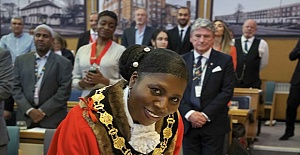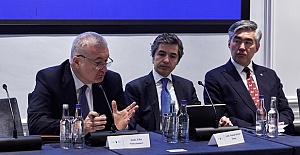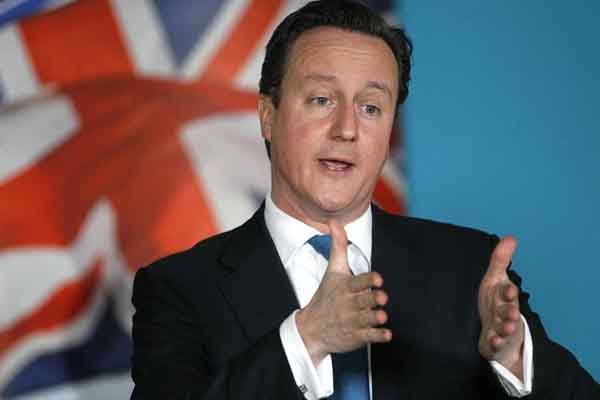The stakes for the future of Britain’s EU membership are high as David Cameron today presents his renegotiation demands to European council president Donald Tusk. As Cameron sets out his stall, Policy Network’s co-chair Roger Liddle offers an in-depth examination of the key areas of renegotiation: Britain no longer part of ‘ever-closer’ union? Although David Cameron insists that the UK should no longer be bound by 'ever-closer union', he is unlikely to obtain a unilateral opt-out. It is realistic to expect the UK's EU partners to include the June 2014 European council statement in a legally binding protocol that in due course would become part of the treaties. They might also consider an addendum that the UK does not see its commitment to membership of the EU (and all its treaty obligations) as extending to the goal of ‘ever-closer’ union.
Securing fair treatment between the ‘euro-ins’ and ‘euro-outs’
Strengthening safeguards to ensure fair treatment of countries outside the eurozone has become a key British renegotiation objective. The European council might adopt a declaration of principles addressing the reality of an increasingly two-tier EU and providing for an ‘emergency brake’. However, like the West Lothian question, this would immediately raise a number of difficult, if not intractable, issues. Settling them will not be possible in Cameron’s timetable for renegotiation.
A new deal for Britain on EU migration?
EU-wide reform is necessary to bolster support for European integration, but Cameron must tread carefully in any attempt to win UK-only 'fixes'. His flagship demand – a four-year wait before migrants can claim in work benefits – appears to contradict existing European treaty obligations. Buying other member states’ consent for treaty amendments will have a price. If Cameron is to secure a new deal on migration then Britain may have to show greater sense of collective responsibility, especially in light of the refugee crisis.
Achieving a more competitive EU
The Juncker commission's reforming zeal should aid Cameron in demonstrating progress over the EU's role as a source of 'jobs, growth and innovation'. The commission has already produced ambitious plans to take forward the projects of the digital single market and capital markets union. The challenge for Cameron is on how to take advantage of this new reforming mood without critical difficulties arising from a clash of misconceptions within his own party.
The above excerpts comprise a key section Policy Network's forthcoming title The Risk of Brexit:The Politics of a Referendum. The concluding chapters of The Risk of Brexit will go on to consider the prospects for the EU referendum.
Policy Network will formally launch the book at an event in Westminster later this month.


 CTCA UK Condemns the Political Forcing Out of Afzal Khan MP for Engaging with Turkish Cypriots
CTCA UK Condemns the Political Forcing Out of Afzal Khan MP for Engaging with Turkish Cypriots Tatar: “Reaction to MP’s TRNC visit is yet another stark example of the Greek Cypriot leadership’s primitive and domineering mentality”
Tatar: “Reaction to MP’s TRNC visit is yet another stark example of the Greek Cypriot leadership’s primitive and domineering mentality” Margaret Greer has been sworn in as the new Mayor of Enfield
Margaret Greer has been sworn in as the new Mayor of Enfield Prime Minister Keir Starmer's 2025 Easter message
Prime Minister Keir Starmer's 2025 Easter message Team Enfield ranks fifteenth the in London Youth Games
Team Enfield ranks fifteenth the in London Youth Games Parking enforcement boosted with more officers on patrol in Enfield
Parking enforcement boosted with more officers on patrol in Enfield Ersin Tatar meets with President Erdoğan
Ersin Tatar meets with President Erdoğan President Ersin Tatar Holds Ministerial-Level Meeting with UK Minister for Europe
President Ersin Tatar Holds Ministerial-Level Meeting with UK Minister for Europe UEFA Europa League and UEFA Conference League draws to be combined into one single show
UEFA Europa League and UEFA Conference League draws to be combined into one single show EuroLeague schedule for 2025-26 season announced
EuroLeague schedule for 2025-26 season announced Zeynep Sonmez becomes first Turkish tennis player to reach third round at Wimbledon
Zeynep Sonmez becomes first Turkish tennis player to reach third round at Wimbledon European champions Arsenal Women will play all of their league matches at the Emirates Stadium
European champions Arsenal Women will play all of their league matches at the Emirates Stadium Enfield Labour welcomes the completion of A10 average speed cameras extension.
Enfield Labour welcomes the completion of A10 average speed cameras extension. TfL opens 2025 grants for community groups to encourage more walking, cycling and active travel in the capital
TfL opens 2025 grants for community groups to encourage more walking, cycling and active travel in the capital Fethiye Launches International Digital Tourism Campaign with UK-Based Publisher
Fethiye Launches International Digital Tourism Campaign with UK-Based Publisher Highlights from the 3rd Trans-Caspian Connectivity Conference in London
Highlights from the 3rd Trans-Caspian Connectivity Conference in London














